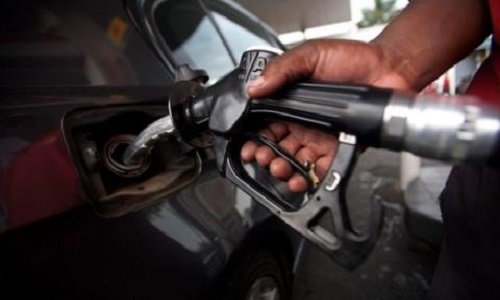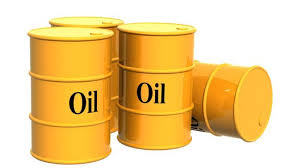
*Industry experts call for reform, new policies to revamp industry
*Others advocate ethanol, CNG for motor vehicles
Oscarline Onwuemenyi
06 January 2018, Sweetcrude, Abuja — The pure anguish and disruption inflicted on the social and economic lives of Nigerians whenever there is a widespread shortage of fuel, is palpable and irksome. That this phenomenon is becoming a regular event for the citizens has cast a pall of misery and helplessness over a country that is supposedly rich in oil and gas resources. It has equally exposed the underbelly of a muddled and weak system, an energy sector in crisis.
Many Nigerians believe that a major solution to the nation’s perennial fuel crisis lies in the local refining of fuel consumed in the country. They call for the revitalisation of the government-owned refineries and the hastening up of the process for the operation of private refineries. For instance, Mr. Azubuike Azubuike, the Zonal Chairman of the Petroleum and Natural Gas Senior Staff Association of Nigeria, PENGASSAN, South-South Zone, in proffering a solution to fuel crisis said: “What the government should be doing at this time is to resuscitate the refineries so that they can produce at their optimal level.
“Then, the modular refineries should be made to come on stream so that we won’t have all these shortages of products all the time.
“Let’s not depend on fuel importation. We all know that importation of fuel is not helpful to the economy because importers need to seek for forex and the implication is that our Naira will be devalued and jobs frittered away.”
The Minister of State, Kachikwu, has also maintained that a major solution to the fuel scarcity challenges in the country is for Nigeria to fix its refineries. He noted that it is shameful that a country after over 35 years cannot produce sufficient fuel for its citizens.
He said: “I have said that selling crude is a fairly wrong model which is akin to selling our agricultural products in the wrong way and nobody does that anywhere in the world anymore. Unless we have operational refineries, there will be no permanent solution to the fuel crisis in the country.”
He said that a lot of work was going on to ensure private sector participation in refining crude oil. According to him, “The gearing up of private refineries and the modular refineries will complement the efforts of the government-owned refineries to ensure there is an adequate supply of petroleum products in the country.”
The minister had also stressed that government had mapped out strategies to ensure availability of petrol which will be sold at the government-regulated price. “The business module of fuel supply in the country is not yet where it should be but within the 18-month period expected to have the refineries work, we are working on how to accept benefits of crude oil price increase and ensure fuel sells at a regulated price,” Kachikwu said.
Private investment in downstream sector
The Nigerian energy infrastructure has been solely financed by the government because of the social and economic impact, high investment requirements and long gestation period. Over 5000km of petroleum product and gas pipelines, storage depots, refinery, power generation, transmission and distribution infrastructures were all built through direct government funding.
Due to competing needs for government resources from other public sector services such as education, health, and transportation infrastructure etc. most energy infrastructure development projects should be financed and managed through private sector participation.
It is in the light of this that comprehensive energy reforms to fast-track the development of energy infrastructure and deregulate the energy market for effective competition and efficient service delivery was embarked upon.
Financing for downstream energy infrastructure such as gas pipeline is different from financing upstream oil and gas development. The former requires a longer-term commitment to service delivery and hence the need for effective legal, regulatory and fiscal framework to ensure level playing field for all stakeholders.
A New Thinking
Industry experts are of the view that a wholesome energy policy for the country will address a plethora of challenges in the oil and gas industry and more especially the regular fuel crisis. They believe that an energy policy that gives clear direction and brings various fuel types into the mix was desirable. Such policy should make it mandatory for the nation to draw its fuel not only from petrol and diesel but from natural gas and even ethanol, they said.
As at now, whereas motor vehicles in several countries around the world run on natural gas and ethanol, this is not the practice in Nigeria. All attention is on petrol and diesel with a far greater percentage of motor vehicles running on petrol, with the result that once there is petrol shortage, the entire nation comes to a standstill.
The Federal Government appears not to be interested in promoting usage of natural gas by motor vehicles. All attention is on using gas for power generation.
Experts say the adoption of a mixture of petrol, diesel, natural gas and ethanol in powering motor vehicles in the country will reduce the undue pressure on petrol and remove the attendant corruption in its supply process, which has cost the nation trillions in the past few years.
A wholesome energy policy for the country in this regard would require that the government does the following:
a. Sponsor legislation which would stipulate that the fuel sold at the pump contains a minimum volume of ethanol which would be reviewed and increased every 5 years. This would serve several purposes including but not limited to job creation; increased agricultural activities; increased domestic fuel volume and possible export.
b. Sponsor legislation which would impose stiffer penalties on the flaring of associated gas and grant tax holiday to start-up companies interested in investing in the production of compressed natural gas for use in cars and electricity generators. Of course, this would serve several purposes including the expansion of the CNG industry and the attendant job creation, as well as the provision of alternate fuel.
c. Place quota restrictions on the amount of petrol/diesel/CNG/ethanol-powered vehicles and electricity generators imported into the country to establish a fair balance. In Europe, there is a deliberate policy to encourage the use of diesel-powered vehicles. To guard against the crippling impact of petrol scarcity on the economy, the quota must be implemented to the letter.
d. Split the country into economic zones to concession same as railway hubs via a tender exercise backed by international best practices. Of course, the railway hubs would link ethanol plants with fuel blending depots, just as same would apply to CNG plants. This would give the economy a massive boost via expanded commerce, create jobs and impact the transportation industry.
e. Encourage the Bank of Industry to provide bankers guarantee for vetted entrepreneurs who are desirous of establishing a modular refinery in the country, ethanol blending plants, the production of compressed natural gas and biodiesel.
f. Articulate a package of incentives for entrepreneurs desirous of establishing a modular refinery, ethanol blending plants, the production of compressed natural gas and biodiesel. including, but not limited to import waivers, and so on.



